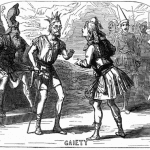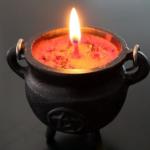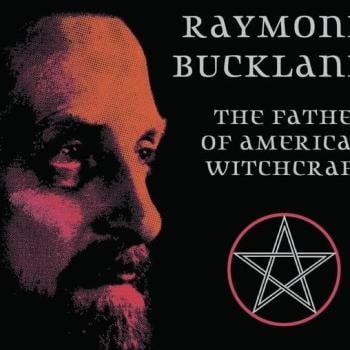For the last ten years I’ve thought of myself as a “High Priest” in certain contexts. Now, I don’t sign my name with “High Priest” or “Reverend” preceding it, and most of the time the whole High Priest thing sits way on the back burner, but there are times when it seems appropriate. I write rituals, lead a couple of covens (with my wife), teach the Craft from time to time, and spend a lot of time thinking about my tradition’s Book of Shadows, it all sounds very High Priestly (or High Priestessy) to me. But I still get it when people write about disliking titles in Modern Paganism.
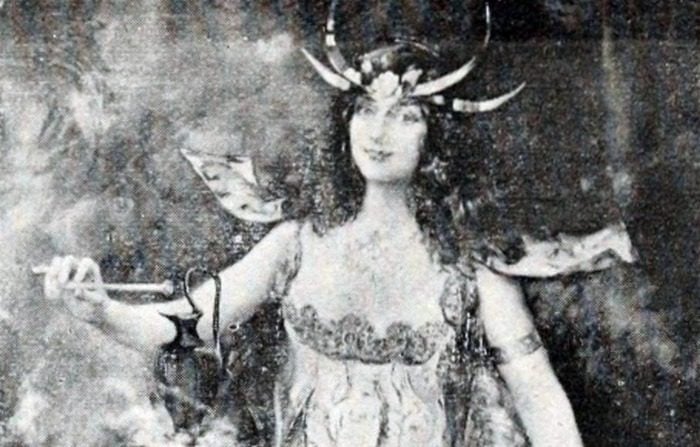
There are people (and have been people) who take advantage of their titles, and they should be held accountable for violating trusts and more despicable things, but getting rid of titles won’t remove all of the bad actors in our community. There will always be people who lead groups for whatever reason, and when we have leaders there will be imbalances of power, and the only way to completely overcome that is not to join any groups at all. (A choice many people have made in the Modern Pagan Community, and I don’t blame them most days.)
Circles, covens, and groves should most definitely not be cults of personality. The successful Pagan group is one that outlives its founder by several generations, and is capable of getting rid of their founders if those individuals turn out to be rotten eggs. Healthy groups do not rely on one or two individuals to impart the “will of the gods” or other such nonsense. Any group who has a leader who speaks in absolutes (“Our god says this and only this”) is worrisome, at best, and sounds more like a cult to me.
One of the problems with terms like Priest and Priestess is that we sometimes make them more exclusive than they should be. Anyone who interacts with deities and performs rituals seeking their presence is a Priest or a Priestess in my book. Ultimately, I think most Pagan faiths are about a personal relationship with what the individual finds sacred or spiritual; which is unlike many forms of Christianity which put books, rules, and clergy in the way of the divine.
Ultimately I think terms like Priestess and Priest have value for a number of reasons.
THERE WILL ALWAYS BE SOMEONE IN CHARGE (AT LEAST KIND OF SORT OF)
In my local community there’s an open circle that elects a new set of leaders every year or so. It’s a great way to divide the amount of work it takes to run a circle, and it stops the group from being all about one or two people. However, watching them interact it’s obvious that one or two people hold more sway over than everybody else. There’s nothing wrong with that, it’s how groups work. There will almost always be a few people who seem to “lead” or hold more sway than others because that’s simply how groups work.
Sometimes it ends up being the person who organizes the events, or has the most experience, or just seem to have the best ideas. “Charisma” is completely unfair, but there are just some people who seem to have “it” more than other people and are able to create circles and groups with ease. Some people end up being leaders in certain situations, and some don’t, but getting rid of titles doesn’t get rid of people being in charge.
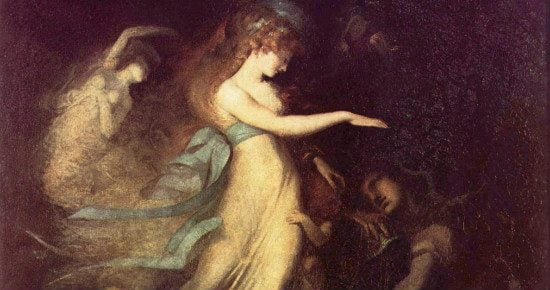
HIGH PRIESTESS/HIGH PRIEST PROVIDE A DEGREE OF ACCOUNTABILITY
If no one is in charge, who is going to be held accountable? There are certainly advantages that might arise from leading a group, but there are drawbacks too (and these might even be more common). If the Sunset Coven is being run by a couple of manipulative assholes people are going to know it and that information is going to spread. Having someone in charge means there’s someone to point a finger at.
In my coven the buck stops at my door. If something wrong is happening it’s ultimately my responsibility, and I’m OK with that. Accepting a title such as High Priestess or High Priest means that you are also accepting of the responsibility that comes with it.
OFTEN PEOPLE EARN SUCH TITLES
In Wiccan-Witchraft titles such as High Priestess are earned over many years. In initiatory traditions people are required to learn and understand a rather large body of work before being given a title such as High Priest. Away from initiatory traditions there are many Witches who learn over a period of years how to run rituals, groups, and do effective magick. Their “training” is just as rigorous as that of someone who became a High Priest through an initiatory coven (though different certainly).
Yeah, there are some people who come out of nowhere and declare themselves “High Priest of Apollo” or whatever, but if they haven’t done the work people see through them pretty quickly. But generally, titles are earned, and when something is earned why wouldn’t you want to share it now and again? People have a natural desire to share their accomplishments, and being a High Priestess is an accomplishment! Accomplishments are things to be celebrated, admired, and acknowledged!
IT’S A PART OF PAGANISM’S HERITAGE
There are a lot of people who seem uncomfortable with Paganism’s origins, but fraternal groups are a big part of it. The first spiritually-inclined Druid groups emerged from Druid fraternal orders that had more in common with the Masons and the Odd Fellows than the Druids of pagan antiquity. And Wicca . . . . well there are a lot of borrowings directly from Freemasonry in that tradition (in the case of Gerald Gardner most likely Co-Masonry), and that’s probably putting it lightly. And Traditional Witches you don’t get out of this easily either, Robert Cochrane probably owes a tip of the stang to the Society of the Horseman’s Word, another fraternal order.
Those groups all had hierarchies and initiations and all that goes with it. For a lot of Paganism’s largest traditions, titles and rank are a part of our DNA. Getting rid of such things would require a massive seachange in a whole host of Pagan traditions, and that doesn’t seem likely anytime soon.
BUT BE WARY
Anyone is capable of violating a trust, and just because a coven has a High Priestess or High Priest doesn’t mean that group is run like some sort of monarchy. If your voice isn’t being heard in the group you are a part of you should probably head for the door. Titles are never an excuse for emotional or physical abuse, and when those things happen you should let people know about it. Most people who claim a title in Modern Paganism have earned it, and do good work once receiving it. But there are awful people everywhere and it’s always best to be wary.
*Well, I kind of worship mine, but she’s also my wife!


